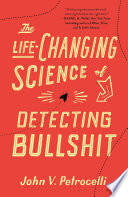

Cognitive biases are systematic patterns of deviation from norm or rationality in judgment. The book emphasizes the importance of recognizing these biases in ourselves and others to better evaluate the information we encounter. For instance, confirmation bias leads individuals to favor information that confirms their preexisting beliefs, while ignoring contradictory evidence. The author discusses various cognitive biases, providing examples from everyday life and scientific studies. By understanding these biases, readers can develop critical thinking skills that help them discern fact from fiction, making them more resilient against misinformation.
Continue readingScientific literacy is the ability to understand, evaluate, and apply scientific information. The book argues that in an age of information overload, being scientifically literate is crucial for navigating claims made by the media, politicians, and marketers. The author outlines key principles of scientific inquiry, including the scientific method, peer review, and the importance of replicability in research. By fostering scientific literacy, individuals can better assess the validity of claims and make informed decisions, ultimately empowering them to engage in discussions about science and technology with confidence.
Continue readingPseudoscience refers to beliefs or practices that claim to be scientific but lack supporting evidence and cannot be reliably tested. The book provides tools and criteria for distinguishing between genuine science and pseudoscience, such as evaluating the source of information, looking for peer-reviewed studies, and assessing the plausibility of claims. By learning to recognize pseudoscientific arguments, readers can avoid being misled by dubious claims that often permeate popular culture, health advice, and even politics.
Continue readingCritical thinking is the disciplined process of actively analyzing, synthesizing, and evaluating information. The author emphasizes that critical thinking is essential for detecting nonsense and making sound judgments. The book offers strategies for enhancing critical thinking skills, such as questioning assumptions, considering alternative viewpoints, and analyzing the reasoning behind arguments. By adopting a critical thinking mindset, readers can become more adept at identifying fallacies and biases in reasoning, leading to better decision-making and problem-solving abilities.
Continue readingThe book explores how confirmation bias affects not only individual decision-making but also societal issues, such as polarization and the spread of misinformation. The author discusses how social media algorithms can exacerbate confirmation bias by creating echo chambers, where users are exposed only to information that aligns with their beliefs. This can lead to a fragmented society, where dialogue and understanding between differing viewpoints become increasingly difficult. The book calls for greater awareness of these dynamics and encourages readers to seek diverse perspectives to combat the negative effects of confirmation bias.
Continue readingSkepticism is a vital tool for questioning the validity of claims and seeking evidence before accepting them as truth. The author argues that a healthy level of skepticism is necessary for navigating a world rife with misinformation. The book discusses the balance between healthy skepticism and cynicism, highlighting the importance of remaining open to new ideas while also demanding rigorous evidence. By cultivating a skeptical mindset, readers can protect themselves from being misled and become more discerning consumers of information.
Continue readingThe final idea focuses on the practical applications of the skills learned throughout the book. The author provides concrete examples of how to apply the principles of critical thinking, scientific literacy, and skepticism in everyday life, whether in personal relationships, professional settings, or public discourse. By integrating these skills into daily practice, readers can enhance their ability to detect bullshit, leading to more informed choices and healthier interactions with the world around them.
Continue readingThe reading time for The Life-Changing Science of Detecting Bullshit depends on the reader's pace. However, this concise book summary covers the 7 key ideas from The Life-Changing Science of Detecting Bullshit, allowing you to quickly understand the main concepts, insights, and practical applications in around 21 min.
The Life-Changing Science of Detecting Bullshit is definitely worth reading. The book covers essential topics including Understanding Cognitive Biases, The Importance of Scientific Literacy, Recognizing Pseudoscience, providing practical insights and actionable advice. Whether you read the full book or our concise summary, The Life-Changing Science of Detecting Bullshit delivers valuable knowledge that can help you improve your understanding and apply these concepts in your personal or professional life.
The Life-Changing Science of Detecting Bullshit was written by John V. Petrocelli.
If you enjoyed The Life-Changing Science of Detecting Bullshit by John V. Petrocelli and want to explore similar topics or deepen your understanding, we highly recommend these related book summaries:
These books cover related themes, complementary concepts, and will help you build upon the knowledge gained from The Life-Changing Science of Detecting Bullshit. Each of these summaries provides concise insights that can further enhance your understanding and practical application of the ideas presented in The Life-Changing Science of Detecting Bullshit.